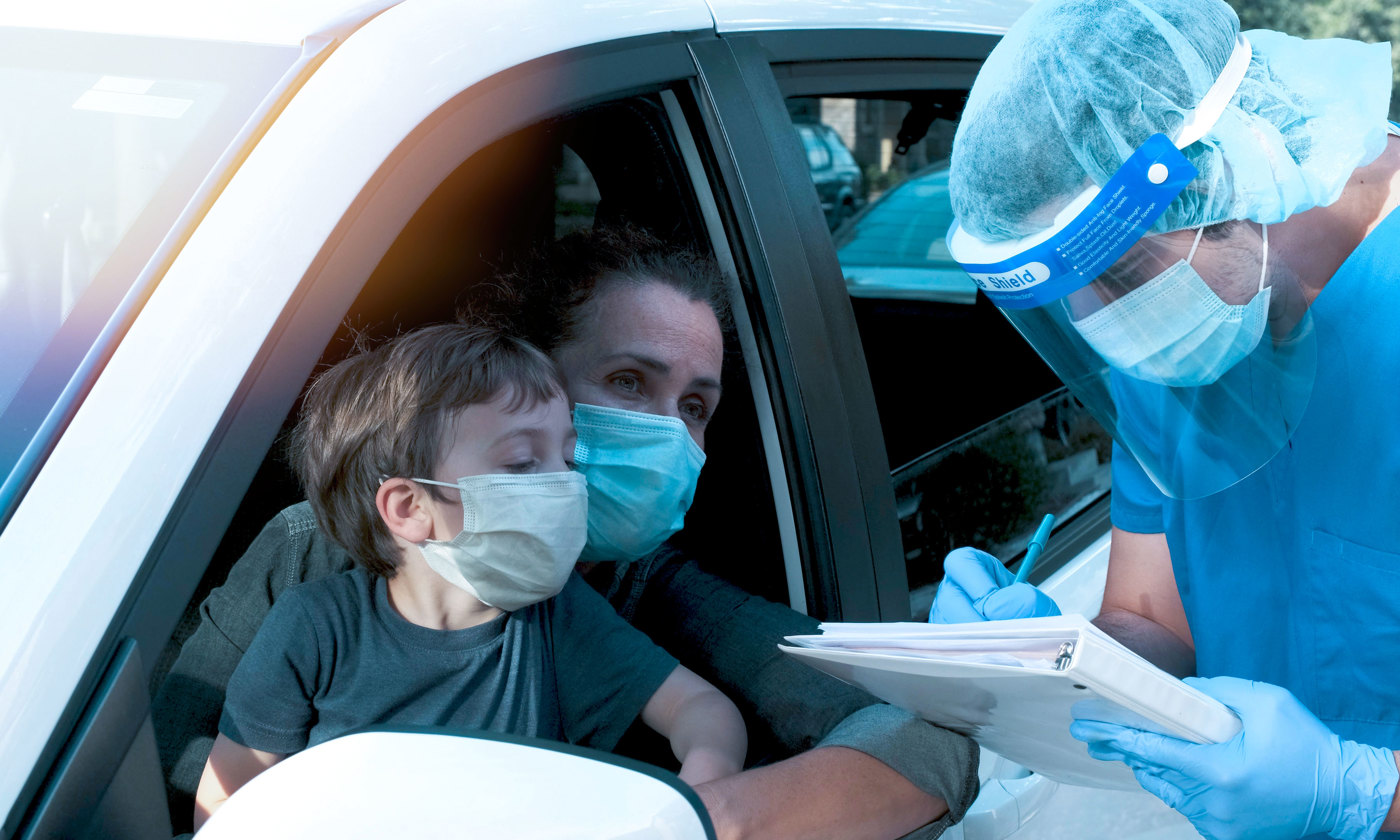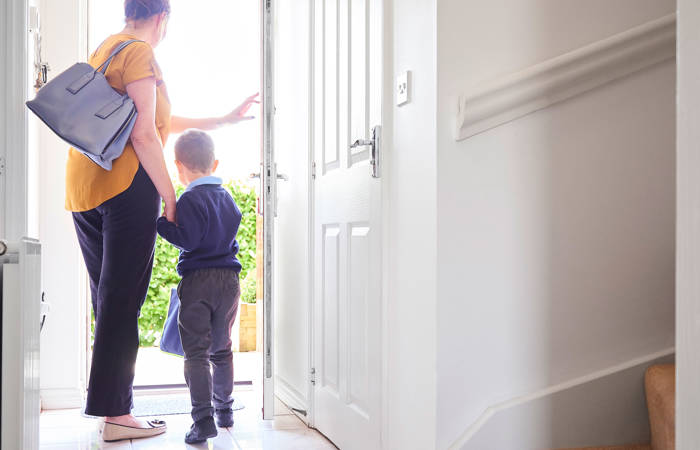Like what you see?
Sign up to receive more free parenting advice.
Thank you for subscribing to our newsletter!
Child Development

Credit: iStock.com/Juanmonino
While Australian parents support COVID-19 testing for children with 79 per cent understanding the important role it plays, 74 per cent may not get their child tested out of fear it will be painful or stressful.
The Royal Children’s Hospital National Child Health Poll[1] of 1434 parents who care for 2553 children, has found a range of barriers which may impact on the willingness of parents to attend a testing clinic for their child.
Almost three quarters of parents are concerned the COVID-19 test might be stressful, painful or uncomfortable for their child with 30 per cent indicating these worries are very likely to stop them from taking their child to have a test.
The highest level of concern is among parents of children aged zero to less than five years (80%). Among those children who had been tested for COVID-19, parents replied that 53 per cent of children found the experience only mildly or not at all stressful.
“As a parent myself, I understand concerns parents have. There are a number of ways you can help ease anxiety in your kids including having them sit on your lap or talking to them calmly about what’s happening without too many details. It can be stressful for parents too – by staying calm yourself you will help your child to cope with the experience. Testing is critically important in stopping the spread of COVID-19,” says Dr Anthea Rhodes, Paediatrician and Poll Director.
“Getting tested as soon as you notice any symptoms and isolating until you receive a negative result and are well, are some of the best ways we can all do our part to stop the spread of COVID-19. This will help us to keep well as a community.”
With hay fever season upon us it may be challenging to figure out if the runny nose your child has is due to pollen or COVID-19 When symptoms start, whether it is a runny nose or a sore throat, you must go and get tested.Dr Anthea Rhodes
Stay up to date with the latest news and articles from First Five Years
Thank you for subscribing to our newsletter!
Parents concerned about isolation and logistics
Despite knowing where to attend testing (83%), parents still hold concerns about the access and logistics.
One in three parents (32%) said that the idea of getting their child tested and having to keep them isolated at home would be overwhelming. One in three parents (31%) said it is a hassle to take their child for a COVID-19 test, and two-thirds (61%) said that testing their child every time they had a cold would result in too many tests. Fifteen per cent of parents said they would be very likely to be deterred from taking their child for a COVID-19 test because they believed their child would refuse to be tested.
Unsurprisingly, parents from Victoria (43%) and New South Wales (38%) are more likely to take their child to get tested compared to all other states and territories combined (16%).
Stigma creates fear
The stigma attached to a positive test has 40 per cent of parents indicating that they may not take their child for a test due to fears of what people would think if their child tested positive. More than a quarter of parents (29%) also indicated they would not want people to know if their child tested positive.
“Fear and anxiety about a disease can lead to negative attitudes and beliefs toward people, places, or things. Stigma hurts everyone by creating more fear or anger toward ordinary people instead of focusing on the disease that is causing the problem.
“Everyone can help stop stigma related to COVID-19 by knowing the facts and sharing them with others in their communities. No single person or group of people are more likely than others to spread COVID-19.”
When to test for COVID-19?
Worryingly, almost half of parents (46%) are still unsure about which symptoms would mean their child needed a COVID-19 test and 48 per cent of parents indicated that if their child had a runny nose or cough it was likely to be the common cold and they did not need a test.
“With hay fever season upon us it may be challenging to figure out if the runny nose your child has is due to pollen or COVID-19. When symptoms start, whether it is a runny nose or a sore throat, you must go and get tested. You can check your local government website for the full list of symptoms so you know what to look out for,” Dr Rhodes says.
“If in doubt, you can call the National Coronavirus Helpline or contact your GP for further advice. To help keep our families, schools and communities safe, please don’t delay testing or ignore symptoms”.
[1] The Royal Children’s Hospital (RCH) National Child Health Poll is a quarterly, national survey of Australian households shedding new light on the big issues in contemporary child and adolescent health.
Where to find help
There are a range of video resources created by the RCH specifically for children to help them prepare for a COVID-19 test. If your child needs a test for COVID-19, watch the ‘A child’s guide: COVID-19 test’ video with your child before your test.
General additional resources
- RCH Kids Health Info – Supporting your child to cope with the COVID-19 pandemic
- Raising children – Coronavirus: family guide
- Victorian State Government – Advice for parents, carers and guardians
- Department of Health and Human Services – Managing illness in schools and early childhood services
Financial resources
- Department of Social Services – Coronavirus information and support
- Money Smart – COVID-19 financial assistance
Coronavirus
Australian, state and territory health department websites have the latest and most reliable information and advice about coronavirus (COVID-19). For more information visit their websites or call the Coronavirus Health Information Line on 1800 020 080 or Healthdirect on 1800 022 222.






